Duration
9D/8NTrek Difficulty
DifficultHighest Altitude
4915mtBest Time
June to SeptemberPrice
15000/-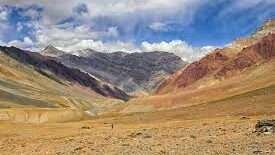
Himachal Pradesh
PIN BHABA PASS
Details
The Pin Bhaba Pass trek offers trekkers stunning views of the Himalayas, diverse landscapes, and cultural encounters with local villagers. The highlight is crossing the challenging Pin Bhaba Pass, situated at over 4,915 meters above sea level. It's an ideal adventure for nature lovers seeking a memorable Himalayan experience.
Shimla to Kafnu
Journey Begins:Start your journey with a drive from Shimla to Kafnu. This scenic drive takes you through the beautiful landscapes of Himachal Pradesh, introducing you to the verdant valleys and charming hill stations.
Arrival at Kafnu:Spend the evening in Kafnu, the starting point for the Pin Bhaba Pass Trek. Prepare for the trek ahead and acclimatize to the altitude.
Kafnu to Mulling
Trek to Mulling: Begin your trek from Kafnu, ascending through forests and alongside the Bhaba River to reach Mulling. This section introduces you to the pristine beauty of the region.
Camp at Mulling:Set up camp in Mulling, a picturesque meadow surrounded by towering mountains. Enjoy the serene environment and prepare for the next day's trek.
Mulling to Karah
Ascend to Karah: Continue trekking from Mulling to Karah, traversing through alpine meadows and crossing streams. The trail offers stunning views of the surrounding peaks and valleys.
Camp at Karah: Arrive at Karah and set up camp. The site offers a peaceful setting for rest and rejuvenation amidst the mountains.
Karah to Phutsirang
Journey to Phutsirang: Trek from Karah to Phutsirang Campsite, ascending further into the mountains. This part of the trek takes you closer to the base of the Pin Bhaba Pass, showcasing the rugged beauty of the landscape.
Camp at Phutsirang: Spend the night at Phutsirang, strategically located for the next day's ascent to the pass. Prepare for the challenging day ahead.
Acclimatization and Rest Day at Phutsirang
Rest and Acclimatize: Spend the day resting and acclimatizing at Phutsirang. Use this time to explore the surrounding area, engage in short acclimatization hikes, and prepare mentally and physically for the crossing of the Pin Bhaba Pass.
Phutsirang to Mangrungse via Pin Bhaba Pass
Cross Pin Bhaba Pass: The day's trek involves crossing the Pin Bhaba Pass, a high-altitude pass that offers breathtaking views of the Pin and Bhaba valleys. The ascent is challenging but rewarding.
Descend to Mangrungse: After crossing the pass, descend to Mangrungse, a stunning landscape on the Spiti side of the pass. The contrast in the landscape is remarkable, showcasing the stark beauty of the Spiti region.
Camp at Mangrungse: Set up camp in Mangrungse, enjoying the unique landscapes and tranquility of the area.
Mangrungse to Mudh
Trek to Mudh: Continue your descent from Mangrungse to Mudh, a charming village in the Pin Valley of Spiti. The trek offers insights into the Spitian way of life and culture.
Explore Mudh:Spend the evening exploring Mudh, known for its beautiful landscapes and traditional Spitian homes. Rest and recover from the trek.
Mudh to Manali
Return Journey: Depart from Mudh, driving back to Manali. This scenic drive through the Lahaul and Spiti region and over the Rohtang Pass offers stunning views and marks the conclusion of your trekking journey.
Arrival in Manali: Reflect on the experiences of your trek, from the lush meadows of Kafnu and Mulling to the dramatic landscapes of Pin Valley and the crossing of the Pin Bhaba Pass.
Buffer Day
Contingency Planning: Use this day as a buffer for any delays or extended rest needed due to weather conditions or other unforeseen circumstances during the trek. If not needed, enjoy exploring Manali and its surroundings, relaxing after the trek, or engaging in local sightseeing and activities.
Terms and Conditions
- Carry valid id card i.e. Aadhar Card/Passport/Driving Licence.
- Modification or Amendment is accepted in compliance with the cancellation policy. Any changes in tax must be paid by the guest.
- Any changes in tax must be paid by the guest.
- Hike2Heaven reserves the right to cancel the booking if the balance amount is not paid at the time of arrival.
- Guaranteed bookings are those for which the full and final payments have been received before start of Trek.
- 30% of the payment must be done at the time of booking.
- The remaining 70% of the payment must be cleared before arrival as it is required to arrange stay, food, and other equipment for the trek.
- Full payment must be made in advance to confirm bookings and can be done in Cash/UPI/Bank account only.
- Personal cheques and post-dated cheques are not acceptable.
- Payments can be deposited using bank details, online payment, Gpay, Phonepe, Paytm.
- A scan or fax copy of the bank-stamped deposit Pay-in slip or a screenshot of the transaction is required for online transfers.
Cancellation Policy
| Number of Days prior to Trek | Cancellation Charges applicable |
| 30 Days before | 10% |
| 8-29 Days before | 30% |
| 7 Days before/ No show | No refund |
Note: - Contact us in case of change of dates/trek
Trek Cost Inclusion
- Accommodation: - Stay is included on all days of the trek. In tents/guest house double/triple sharing only. Guesthouse stay will be at base of Trek and on other days you will be staying in tents.
- Meals: - Meals are simple, nutritious, and vegetarian.
Day Meal included Day-1 of base camp arrival Dinner & Breakfast next morning Next Days on Trek Breakfast, Packed lunch & Dinner Final Day at Base camp for Departure Dinner & Breakfast next morning - Non-veg meals are not served.
- Trek Equipment: - All the trek equipment will be included like a sleeping bag, Camping Tent, kitchen tent, utensils, mattress, tent, toilet tent, and crampon (if needed).
- Transportation: - Transportation charges are included if opted for.
- First aid medical kits.
- All the needed forest entry fees along with permits.
- Your trek will be led by a trained, experienced professional guides and trek leaders with a solid guiding background, trekking experience, and a passion for leading people into breathtaking terrains.
Trek Cost Exclusion
- All kinds of personal expenditures are excluded.
- Anything that we have not mentioned above.
- The trek cost is not inclusive of meals bought during the journey on 1st day and last day. (Food starts from dinner at base camp on day first till last day morning breakfast).
- Mules or porter charges to carry private baggage.
- Any kind of emergency evacuation charges.
Packing List
Things you must take on the trek
- DOCUMENTS REQUIRED
- VITAL GEAR KIT
- PERSONAL MEDICAL/HEALTH KIT
1.DOCUMENTS REQUIRED: -
To ensure a smooth and hassle-free trekking experience with Hike2Heaven, make sure you have the following documents ready. These documents are required by both Hike2Heaven and the forest department, and without them, you will not be permitted to trek.
1.Government Photo Identity Card: Carry the original and a photocopy of a government- issued photo identity card. This can include a driver’s license, Aadhar Card, or passport. The forest department requires this for identification purposes.
2. Disclaimer Certificate: The disclaimer certificate consists of two sections:
•Personal Medical Record if anyDuring registration at the base camp, hand it over to your Trek Leader.
Pro Tips:. Safeguard your important documents by placing them in a clear plastic cover and sliding them into the inner pocket at the back of your backpack. This precaution prevents them from getting wet and ensures their safety throughout the trek.
Having these documents in order ensures a smooth check-in process and allows you to focus on the adventure that lies ahead. Trek safely and enjoy your journey with Hike2Heaven!
2. VITAL GEAR KIT: -
Before making any gear purchases, consider inquiring at Hike2Heaven for custom-made, high- quality gear available at just 5% of the buying cost. Rent trekking essentials like shoes, backpacks, padded jackets, trekking poles, rainwear, and headlamps for less than Rs 1400 for the entire duration of your trek.
-
Here's a comprehensive list of everything you need for your trek:
- Trekking shoes with ankle support
- Backpack with rain cover
- Daypack for the summit day (10-15 L)
- 1 woollen sweater
- 1 fleece
- 1 padded jacket
- 1 woollen sweater
- 2 fleeces
- 1 padded jacket
- 1 pair of thermals
- 1 woollen sweater
- 2 fleeces
- 1 padded jacket
- Sunglasses
- Sun cap with flaps
- Waterproof gloves
- Balaclava
- Socks (2 pairs of Dry fit + 1 pair of Woollen)
- Headlamp
- Trekking pole
- Rain jacket + pants / poncho
- Sunscreen
- Moisturiser
- Light towel
- Lip balm or Vaseline
- Toilet paper
- Toothbrush
- Toothpaste
- Reusable plastic covers (for used clothes)
- Steel lunch box, spoon, and mug
- Two water bottles or Hydration Pack **Our top tip: Keep your backpack light. Hike2Heaven promotes low-impact sustainable trekking, and carrying your own backpack reduces your impact on the mountains by 20%. We encourage all trekkers to carry their own backpacks unless they have a justifiable reason not to. Trek responsibly and enjoy your adventure!
1. Shoes and Backpack:
2. Warm Layers and Clothes:
Spring, Summer, and Monsoon Treks (3 layers):
Autumn Treks (4 layers):
Winter Treks (5 layers):
3. 3 collared T-shirts (Wear one, carry two)
4. 2 quick-dry trek pants (Wear one, carry one)
5. Accessories:
6. Toiletries:
7. Cutlery:
3.PERSONAL MEDICAL/HEALTH KIT: -
Ensure you carry these medicines with you, easily accessible always. Remember not to take any medicine unless you have consulted your trek leader.
1. Diamox (1 Strip): An essential part of Live Saving Drugs, Diamox helps reduce the chances of Acute Mountain Sickness on the trek.
2. Dolo 650 (5 tablets): A paracetamol that tackles fever and mild pain.
3. Avomine (4 tablets): If you are prone to motion sickness, carry Avomine. Take one-half hour before the start of your road journey.
4. Combiflam (5 tablets): Useful for sudden twists or muscle strains. Combiflam is a pain reliever containing paracetamol.
5. Digene (4 tablets): Take it if you feel the food, you've consumed is undigested. Alert your trek leader immediately, as it could be a sign of AMS.
6. ORS (6 packs): Consume an ORS pack at least once a day, usually mid-day during your trek. It replenishes essential salts lost while trekking. Tip: It also makes cold water easier to drink.
7. Knee Brace (optional): Carry this if you are prone to knee injury or have known issues of knee pain.
Our trek leaders carry a high-altitude medical kit, including Life Saving Drugs, and are trained to handle emergencies. Contact your trek leader before consuming any of these medicines.






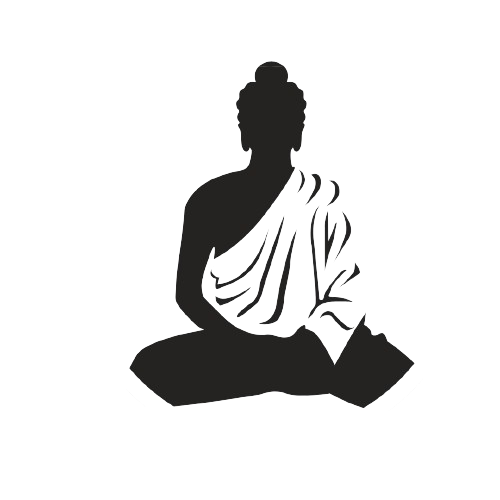

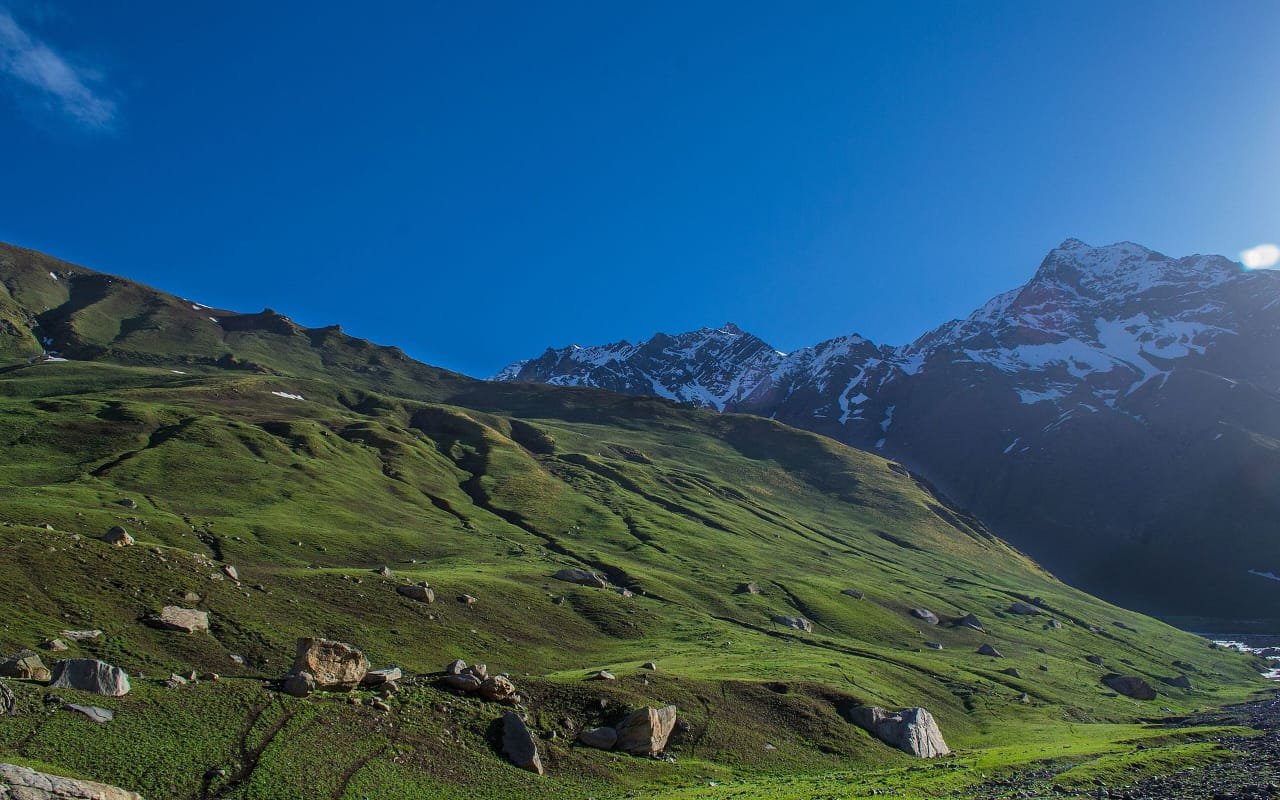
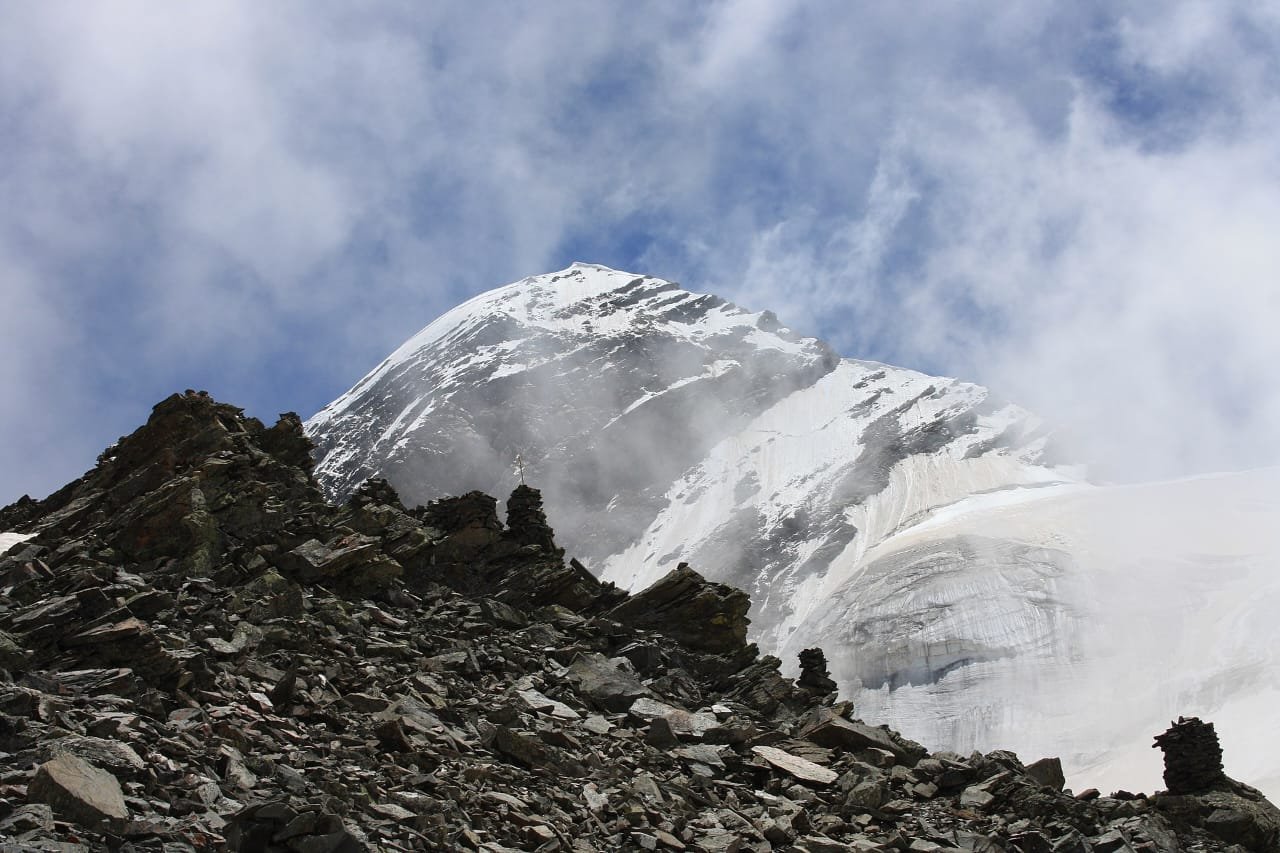
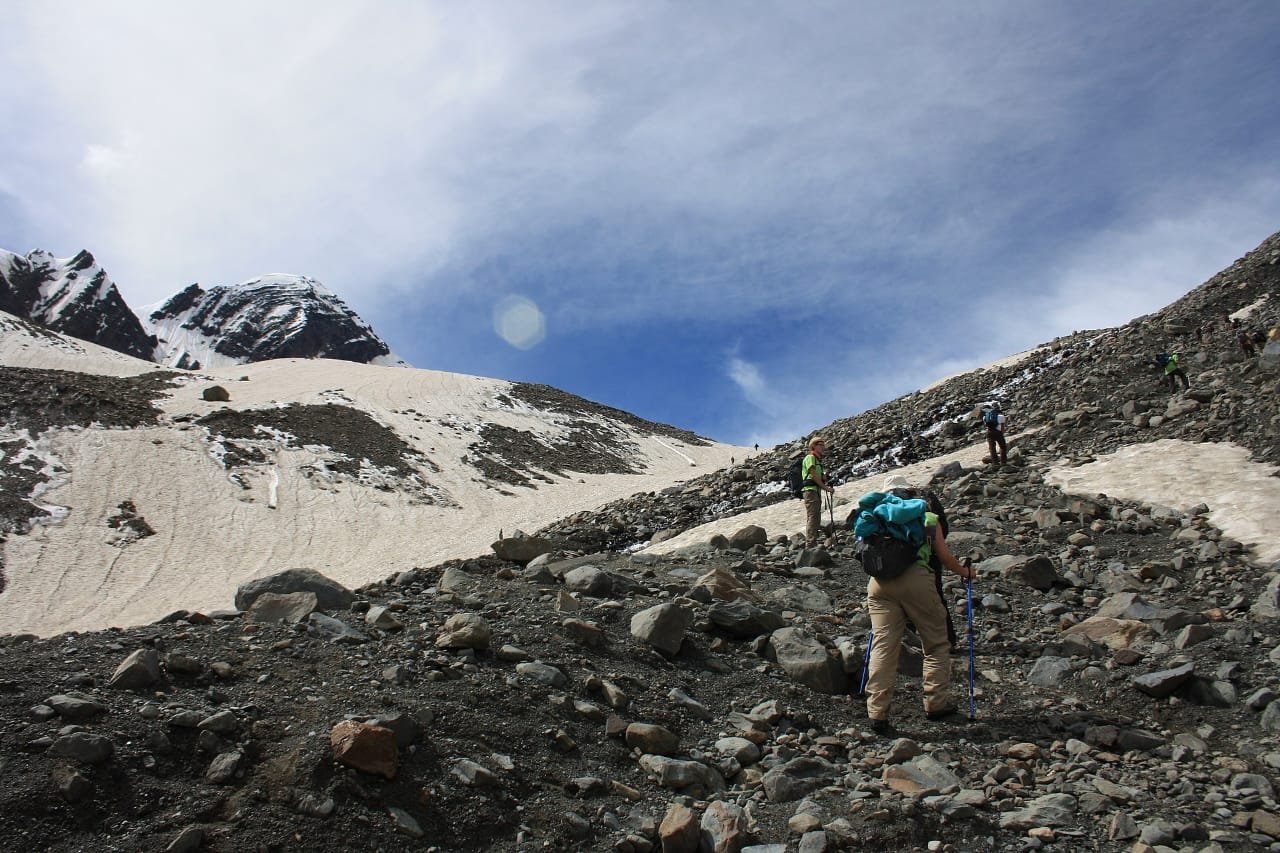
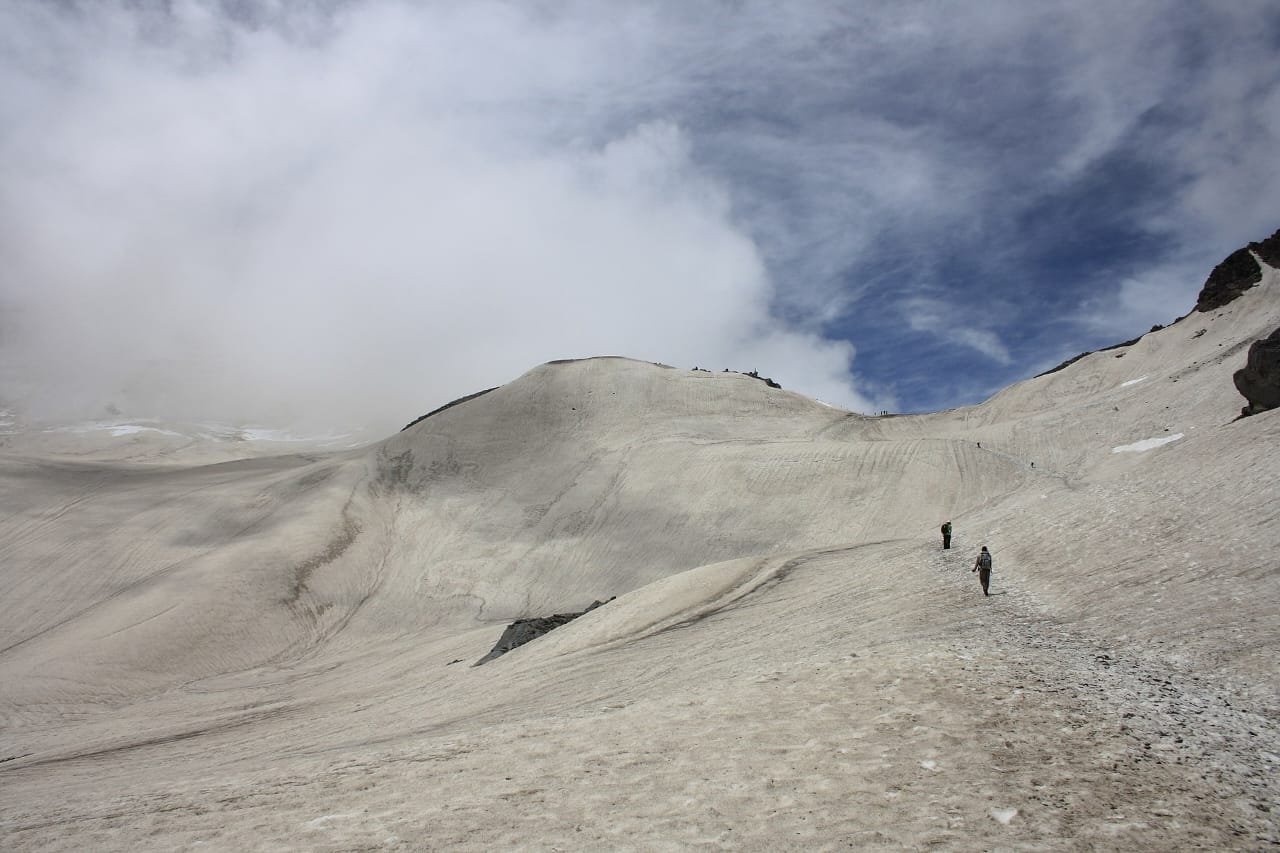
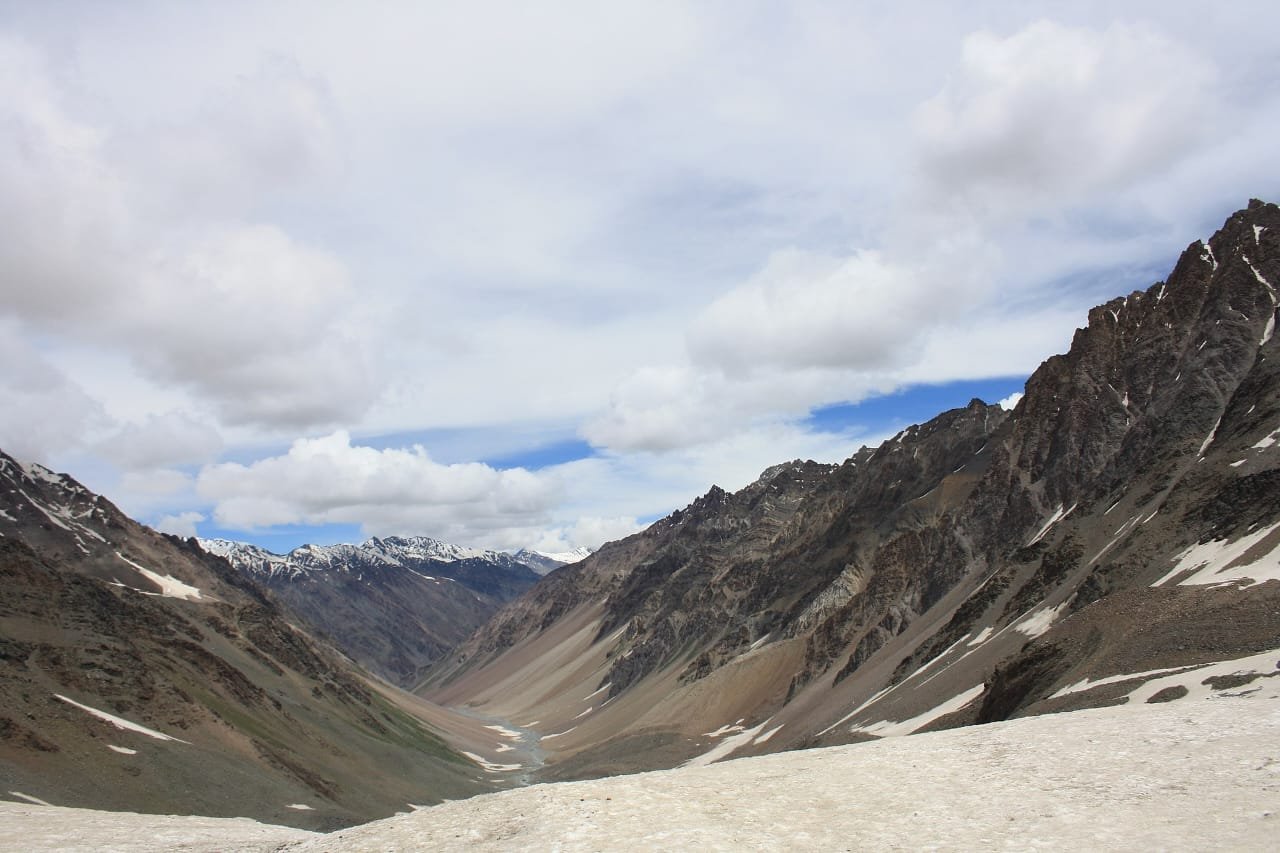
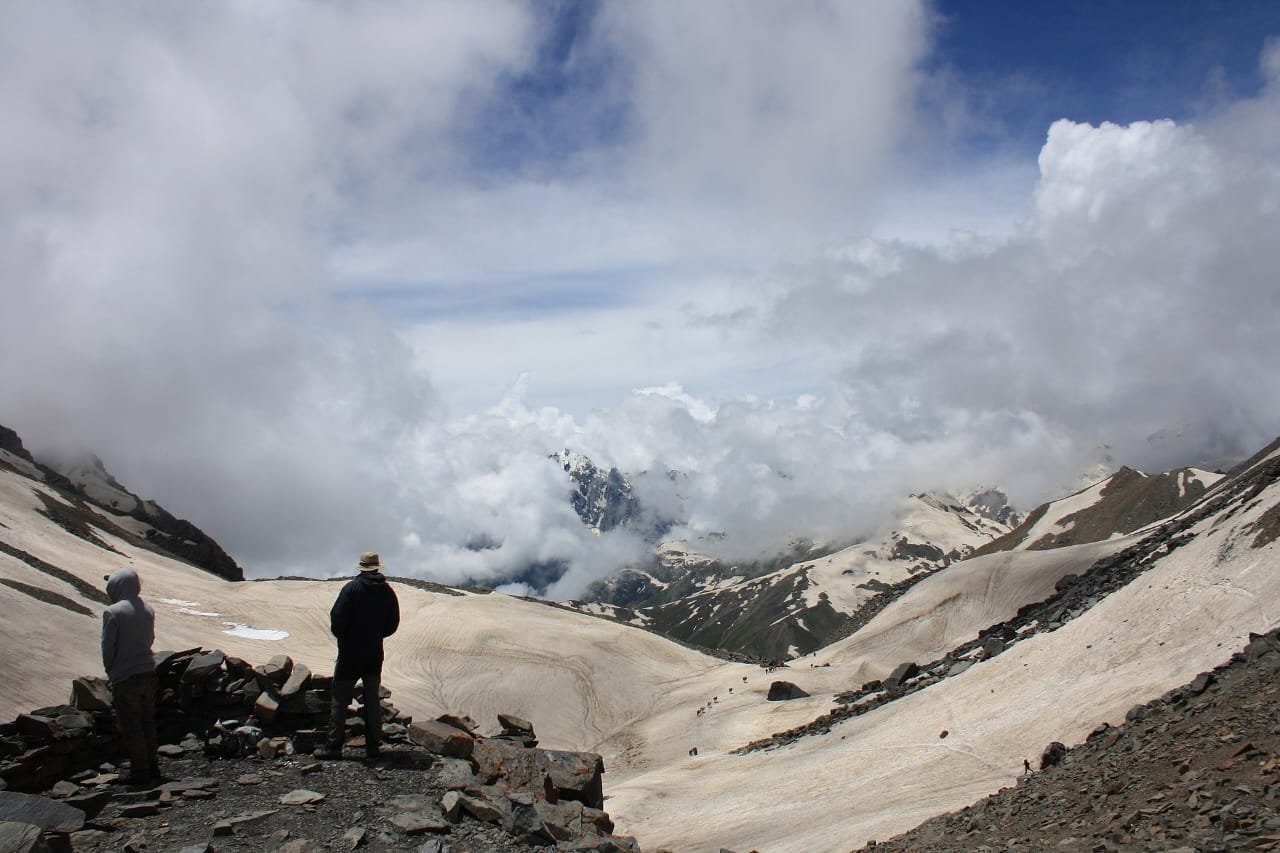

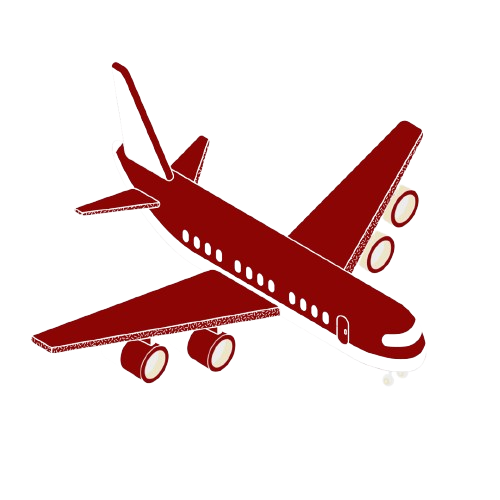


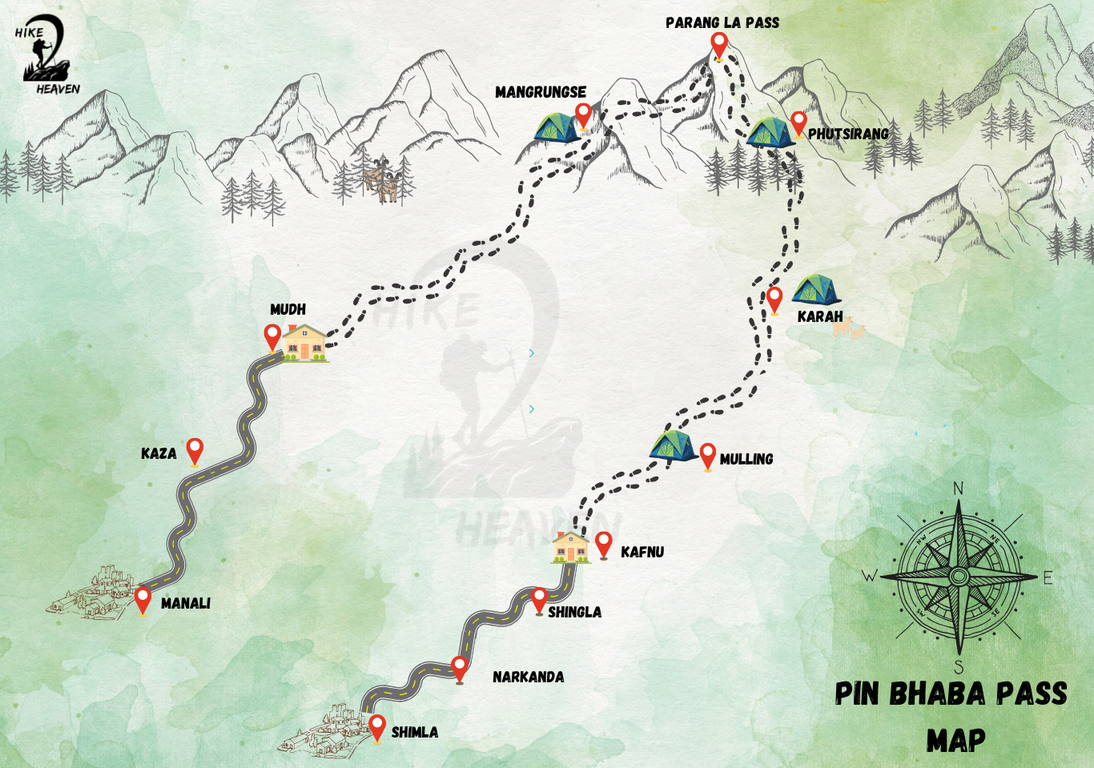
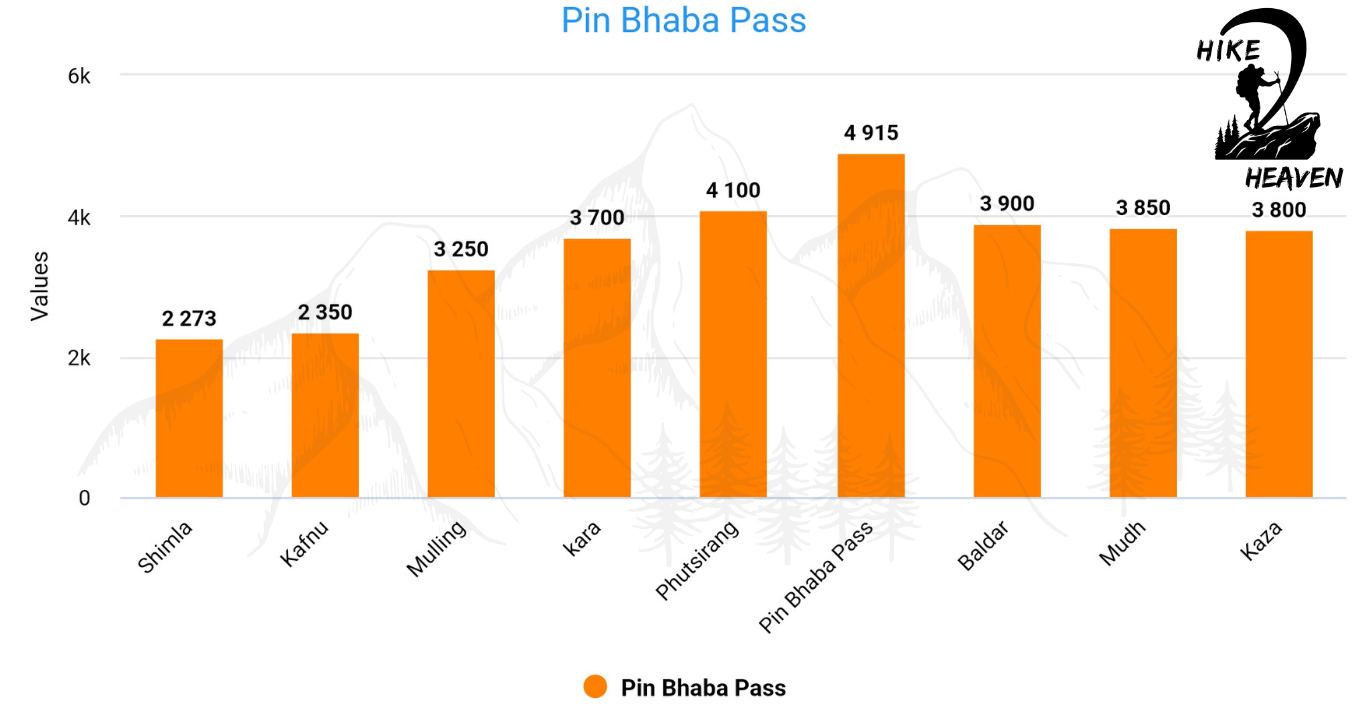
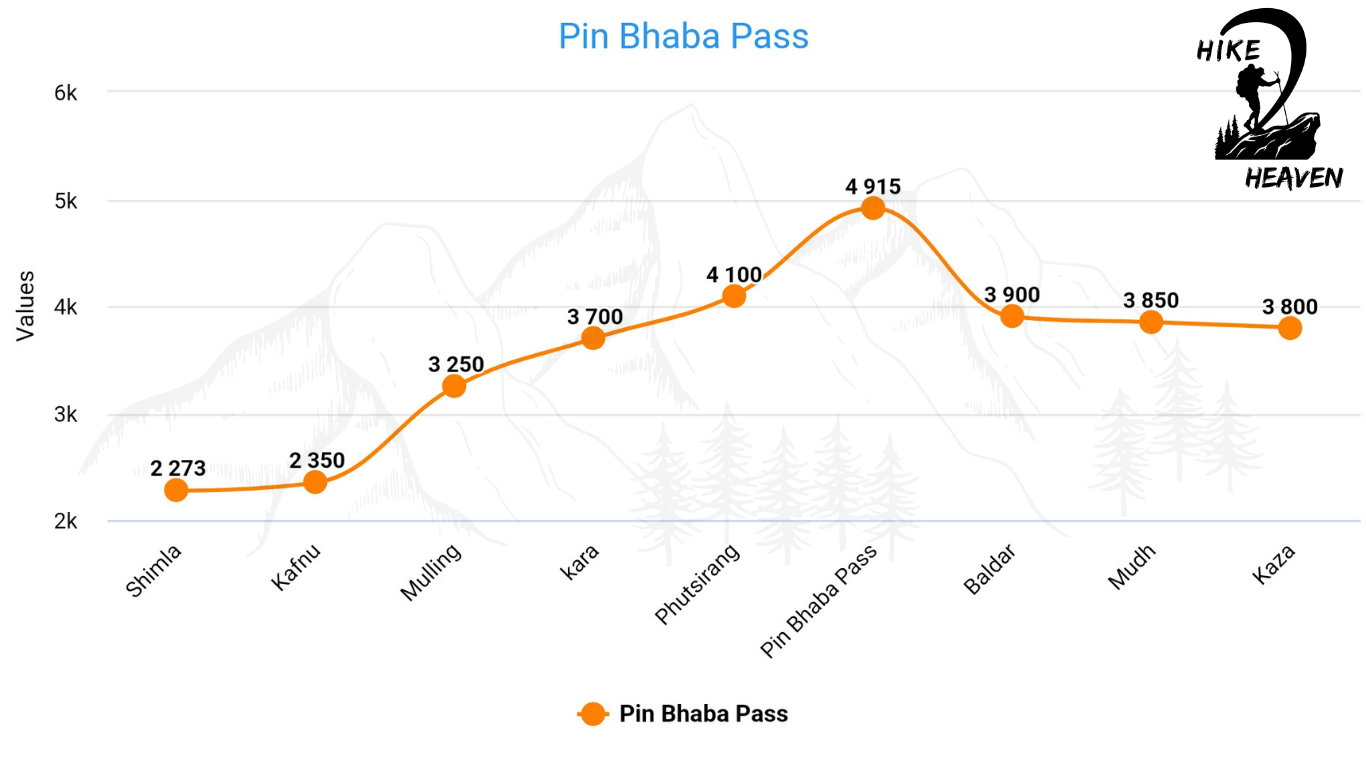

Write Your Review